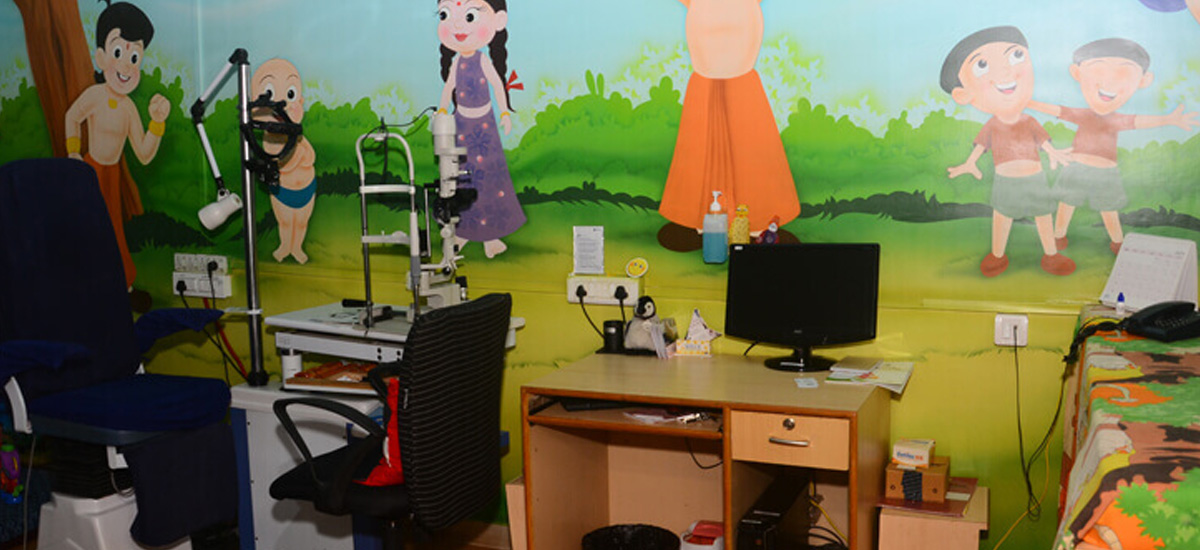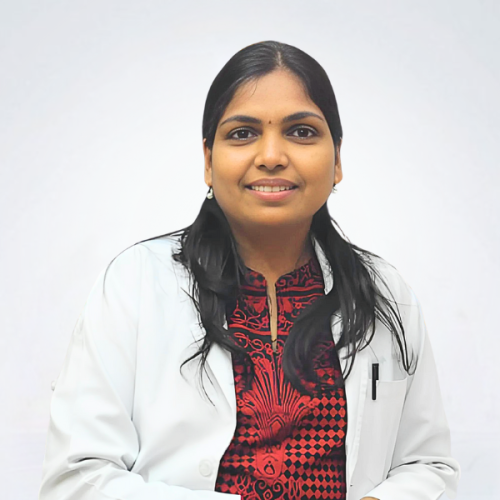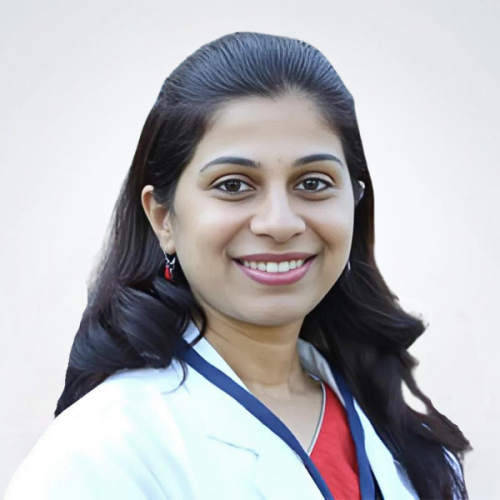Expert Eye Care for Children and Adults with Strabismus

At M M Joshi Eye Institute, our Paediatric Ophthalmology Clinic is dedicated to diagnosing and treating eye conditions in children from infancy through adolescence. We also offer care for adults with strabismus (misaligned eyes). Our services include advanced diagnostic evaluations, effective non-surgical treatments, and specialized surgeries for various pediatric eye conditions.
What is Pediatric Ophthalmology?
Pediatric Ophthalmology is the branch of eye care focused on diagnosing and treating eye disorders in children, from newborns to teens, and even adults with strabismus. Research indicates that 1 in 6 children experiences some form of vision issue, and early detection is key to effective treatment. At M M Joshi Eye Institute, our Pediatric Ophthalmology and Strabismus Service provides primary care and surgical solutions for common childhood vision disorders, including the correction of eye misalignment and double vision.
Why Are Regular Eye Exams Important for Children?
Early and routine eye exams are crucial to detecting and managing vision problems in children. We recommend eye exams at the following ages:
Once between 6 and 12 months of age.
At least once between 3 and 5 years of age.
Annually after starting school.
What to Expect During Your Child’s Eye Exam
Your child’s eye exam at M M Joshi Eye Institute will be thorough and tailored to their age and needs. It usually consists of:
Vision Testing: To check how well your child sees near and far objects. If your child cannot read, we use visual aids like pictures and shapes.
Depth Perception and Eye Alignment: We evaluate how well your child’s eyes work together and align.
Peripheral Vision Testing: Checking the side vision of each eye.
Pupil Dilation: Eye drops are used to widen the pupils, allowing for a detailed examination of the retina and optic nerve.
Glasses Prescription: Special lights and lenses are used to determine if your child needs corrective lenses.
When to Seek an Eye Exam for Your Child
If you notice any of the following symptoms in your child, it’s time for an eye checkup:
Crossed eyes or lazy eye.
Injury to the eye.
Difficulty seeing objects far away or up close.
Rubbing eyes frequently or complaints of itchy, burning eyes.
Drooping eyelids.
Family history of vision problems.
Retinopathy of Prematurity (ROP) concerns for premature babies.
Common Pediatric Eye Conditions Treated
Our Pediatric Ophthalmology Department treats a wide variety of eye conditions in children, including:
Routine eye care and vision checks.
Amblyopia (Lazy Eye): Treatment to strengthen weaker eyes.
Pediatric Glaucoma: Managing childhood glaucoma to prevent vision loss.
Retinoblastoma: Treating eye cancer in children.
Strabismus: Treating eye misalignment in children and adults.
Pediatric Cataracts: Surgical and non-surgical treatments for congenital cataracts.
Retinopathy of Prematurity: Early detection and laser treatment for premature infants.
Eye Trauma: Emergency care for eye injuries.
Pediatric Ophthalmology Treatment Options
We offer a variety of non-invasive treatments to correct common childhood eye conditions, including:
- Glasses: For focusing or alignment problems.
- Amblyopia Treatment: Eye patching, glasses, or eye drops to treat lazy eye.
- Strabismus Correction: Glasses, eye exercises, or prisms to correct eye misalignment.
- Topical and Oral Medications: Eye drops or pills for treating pinkeye, ocular allergies, eyelid cysts, and glaucoma.
- ROP Laser Treatment: Laser therapy for retinopathy of prematurity in infants.
For conditions requiring surgical intervention, we offer:
- Strabismus Surgery: Realignment of eye muscles to correct improper eye positioning.
- Blocked Tear Duct Surgery (Nasolacrimal Duct Surgery): Surgery to unblock tear ducts in children.
- Childhood Cataract Surgery: Surgical removal of cataracts in children to restore clear vision.
- Glaucoma Surgery: Procedures to manage and reduce high eye pressure in pediatric glaucoma.
Outpatient Pediatric Ophthalmology Services
We offer comprehensive outpatient services for patients, ensuring regular monitoring and timely interventions:
Vision Evaluation: Comprehensive vision assessments, including refractive error correction.
Specialized Vision Checks for Infants: Early detection of vision issues in newborns.
Cycloplegic Retinoscopy: Objective refraction testing for accurate prescription.
Strabismus Evaluation: Detailed assessment using prisms to detect misalignment.
Diplopia Charting: Measuring double vision to guide treatment.
Tonometry: Measuring eye pressure using Goldmann’s Tonometer or Tonopen.
Pediatric Ophthalmologists — The Best Care For Children
Why Choose M M Joshi Eye Institute for Pediatric Ophthalmology?
Book Your Child’s Eye Exam Today!
Regular eye exams are essential for ensuring your child’s vision develops properly. Schedule an appointment with our pediatric eye specialists to safeguard your child’s eye health.
FAQs
Glaucoma is a disease of the optic nerve, a structure that connects the eye to the brain. The nerve is composed of 1.2 million fibers that originate in the retina. If the optic nerve is damaged from any cause, visual signals from the eye cannot reach the brain, leading to vision loss.
In glaucoma, the optic nerve fibers degenerate over time. The nerve then remodels, or changes shape, as the tissue is lost – this process is called “cupping.” These nerve changes occur in characteristic patterns which are distinct from other optic nerve diseases and can be identified during a dilated eye exam. Uncontrolled glaucoma is a progressive disease characterized by increased cupping over time.
In general, the fibers that are responsible for peripheral vision are affected first, and those maintaining central vision are affected late in the disease. As a result, most people with glaucoma will maintain vision straight ahead in at least one eye. Unfortunately, people may not notice changes in their peripheral vision in their everyday life, and so they may be unaware of a problem until they already have advanced damage. The optic nerve is an extension of the brain – like the brain and spinal cord, the optic nerve does not regenerate. As a result, any vision lost secondary to optic nerve damage is permanent. This is why early detection and treatment are absolutely essential for preventing blindness from glaucoma.
This is a complicated question which many researchers, are trying to understand. From ongoing research, we know that genetics, eye pressure and blood flow are all involved. While high eye pressure (over 21 mm Hg) is commonly associated with glaucoma, it is not part of the definition of glaucoma. A person can develop glaucoma at normal eye pressures (13 to 20 mm Hg). For this reason, optic nerve examination is the key to diagnosis.
Glaucoma can be diagnosed with a complete eye examination. This includes measuring vision and eye pressure and having a dilated eye examination to properly evaluate the optic nerve. If any of these parameters are abnormal (for example, high eye pressure or a suspicious appearing optic nerve), further testing will be done.
Glaucoma is a chronic disease. Using your eye drops faithfully and having regular examinations to monitor the eye pressure and optic nerve are the two most important parts of glaucoma care. Once the eye pressure is controlled, it will be monitored every 3-6 months. This is essential because pressure can increase over time despite medications. Since even moderately high eye pressure rarely causes pain, you will not be able to tell if your pressure is elevated and need your doctor to check it on a regular basis. Be prepared for regular checks of your optic nerve visual field. While we know visual fields can be hard to take, they are particularly sensitive at detecting changes if you already have an abnormal visual field. Glaucoma is not about a pressure. While we take into account a lot of parameters to pick a general target for your pressure, everyone is different and each nerve reacts differently to pressure. Treatment is a dynamic process, and we continually reassess our goals based on how the eye is responding to certain levels of pressure. If your nerve or field changes, we will adjust our treatment to lower your pressure even further using surgery (trabeculectomy).


